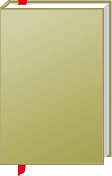

 |

|

The average rating for Sylvester Graham's Lectures on the Science of Human Life based on 2 reviews is 4 stars.
Review # 1 was written on 2010-11-26 00:00:00 RICH SPARKS RICH SPARKSWritten in 1916 when the author was only 24 years old. The book is probably misnamed. It should more accurately be titled: "Exercises for the Mind: A user's guide to developing your brain for maximum effectiveness". I would probably put this book in the "self-help" category too. I enjoyed this book and there is much to say about those who are avid readers (like many who belong to Goodreads): "Learning to think by reading is like learning to draw by tracing. In each case we make the work of another man our basis, instead of observing directly from Nature. The practice has its value, it is true; but no man ever became a great artist by tracing, and no man will ever become a great thinker by reading." Hazlitt also has much to say about taking time out from reading to actually think. He offers many helpful suggestions on how to organize your thinking process toward a determined purpose. He even provides a long list of topics the reader may wish to think about in greater depth. One point Hazlitt makes is that choosing a book is a very big responsibility, since there is so much trash and we have so little time. In his day he cited data that said there were a total of 5,000,000 different books (titles) ever printed. He said if you read 25 books per year, you only get to read on book in every 3,600! For every book you choose to read, you must ask: Is this book one-in-a-thousand? "Nine-tenths of our reading is on mere chance recommendation, passing whim or by sheer accident. We catch sight of a book on a library table. Having nothing better to do we pick it up; we start perusing it. Every book read in this way means a sinful waste of time. To be sure, a book read in this chance manner might (accidentally) be very good—even better than some you would have planned for; but this will happen seldom, and is never a justification of the practice. By going a round about way to a place a man might stumble across a lost pocketbook, but this would not justify taking round about ways." He practically invented the function provided by Goodreads.com 95 years ago: "Perhaps the best way to do this would be to make out a list of the books we intend to read for the coming year, or say a list of from a dozen to twenty-five volumes, and then read them in the order listed... If you cannot keep a list of books you intend to read, at least keep a list of books you have read." Brilliant! Highly recommended for all members of Goodreads. The ebook version is available for free here: (updated link) |
Review # 2 was written on 2017-01-31 00:00:00 Chris Taylor Chris TaylorTrue to its title, the book pursues thinking as a science. Thinking here is not for amusement, but to solve a problem. The larger problems can be broken down into subsidiary problems. For example, what should be the sphere of the government? can be asked specifically as: should the government interfer with the freedom of contract? .To solve the problems, requires 'How to think' systematically. Different methods like historical, comparative, deductive, experimental,analogy etc are discussed. The focus is shifted from thoughts to the thinker. After selecting the problem( which is interesting to the thinker), it must be concentrated upon. Concentration is required because otherwise, we will keep on picking up questions, exploring for a while and then abandoning it without much progress. Writing down the problem, talking about it are suggested as some ways to increase concentration. There is a interesting chapter on prejudices. The prejudice can be due to self interest, desire to imitate, inability to deal with inconsistences, of not being different. One can get rid of these, if he is committed to truth. Hazlitt has different views on reading. His sole focus in on critical thinking. Reading is a tool to further this end. It is not a escape door. Firstly, we have to select which book to read on a subject. The book must be a comprehensive textbook. The reading of the book has to accompanied with thinking about the problems or suggestions. Once read, it can be read at most once. The rereading can be done after lapse of time because we would have also grown intellectually and experientially. There must also be an attempt to read books of different disciplines. This involves making a yearly list of what to read.( Like Goodreads) Practice is the key to break free from old habits of neglected thinking. Starting with some minutes on a specific method, we can expand it further. The book does contain some valuable insights to the most important, yet ignored area called thinking. |
CAN'T FIND WHAT YOU'RE LOOKING FOR? CLICK HERE!!!